Studio:
41 cours Lieutaud
Fr-13006 Marseille
BIOGRAPHY
Juliette Déjoué graduated from the Beaux-Arts de Marseille in 2011. Her double practice of painting and live painting constitutes a factory of images stemming from a reinvented popular tradition, where the motif, the decor, the objects and the characters cohabit in a fiction with frank colors.
Juliette Déjoué is a founding member of the Yassemeqk collective. Her work has been shown in France and internationally: Lavigne Gallery, Paris; Affenfaust Gallery, Hamburg; Pearl and Bones Gallery, London; IFM Casablanca, etc. The collective Yassemeqk participated in the White Mountain College residency in August 2020 and was recently visible in Marseille at the Sissi Club and the Nave Va.
—
Born in 1983 in Brest. Lives and works in Marseille.
Juliette Déjoué creates stage settings that are destined to welcome – and be activated by – people, who are invited to appropriate the space that she creates. With generous abundance, her work echos carnivals and folk practices; masks, costumes, and other decorative objects, which are made from plaster, mortar, ceramic or papier-mâché, mix with found articles. These objects are made available to people, who are invited to appropriate them, and they blend, according to their use, singular associations with multiple realities. Against this backdrop, it is difficult to discern objects and people from the zone that welcomes them – sometimes they are brought to centre stage or are on the verge of coming to life.
These tableaux vivants, created by Juliette Déjoué, resist time thanks to their photographic traces, archives of a theatre in which volume and painting mischievously mix in the foreground and background. The images of scenes that play out against these backdrops trouble the perception of space in two or three dimensions. Placed next to the set, or existing independently of it, these photos act as a possible invitation, or inspiration, for someone wishing to take part in the installations and flexible forms. The decisive moment of capture marks a time of festivity, a performance without public that allows moments of complicity and play, during which Juliette Déjoué withdraws in order to let each participant let go of themselves, play with her work, and generate new stories from the multitude of elements made available to them.
In a continuous play of setting, form, perspective, composition, and colours, Juliette Déjoué constructs in her stage settings places of potentiality, from which unspoken or vague narratives can unfold. In these latently modifiable zones, where excess can occupy its full place, Juliette Déjoué lets participants find their own characters and playfully take part in the composition – thanks to the evocative power of objects, which are envisaged as springboards from one universe to another.
Camille Ramanana Rahary
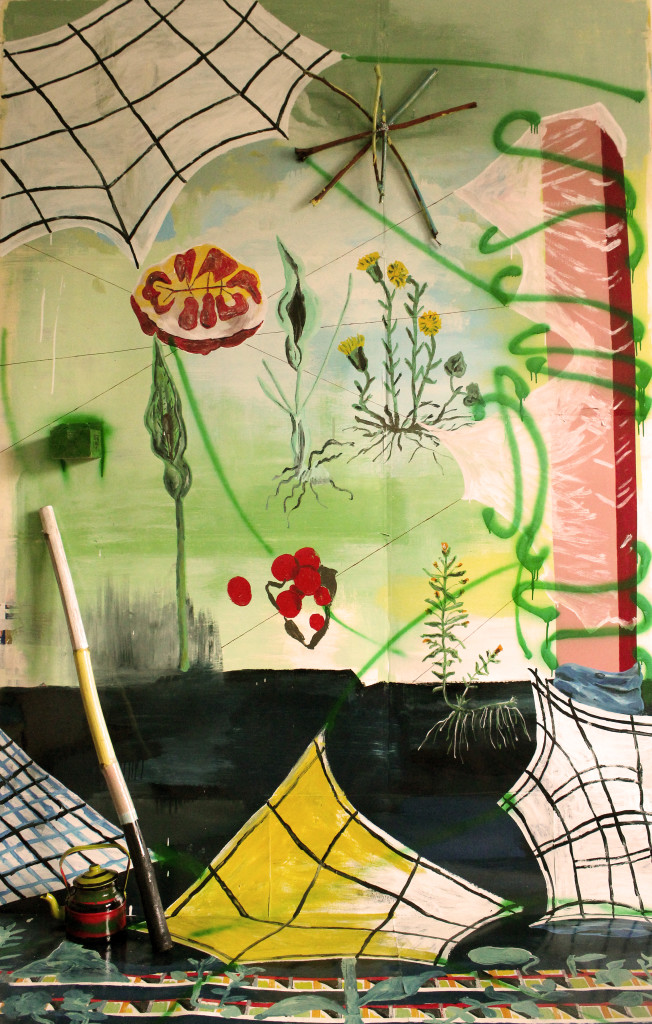 Botanique
BotaniqueJuliette Déjoué, Botanique, variable dimensions, mixed media, 2018.
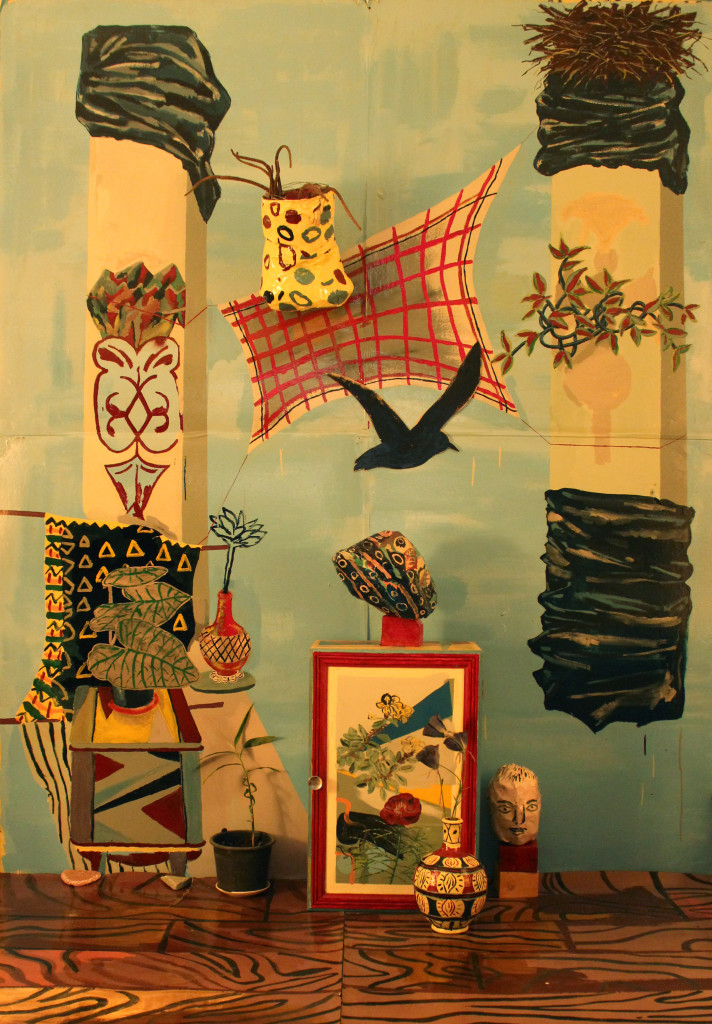 Harraga
HarragaJuliette Déjoué, Harraga, variable dimensions, mixed media, 2018.
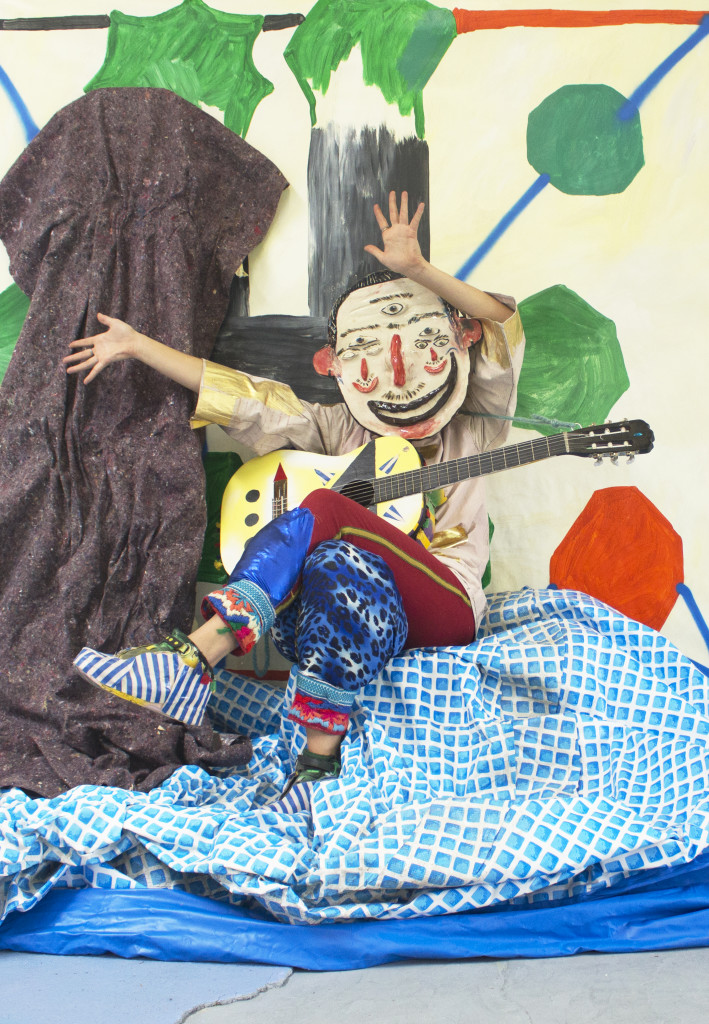 Arnaque Minimale
Arnaque MinimaleYassemeqk, Arnaque Minimale, from a series of 5 portraits, photos, 160x90cm, 2020.
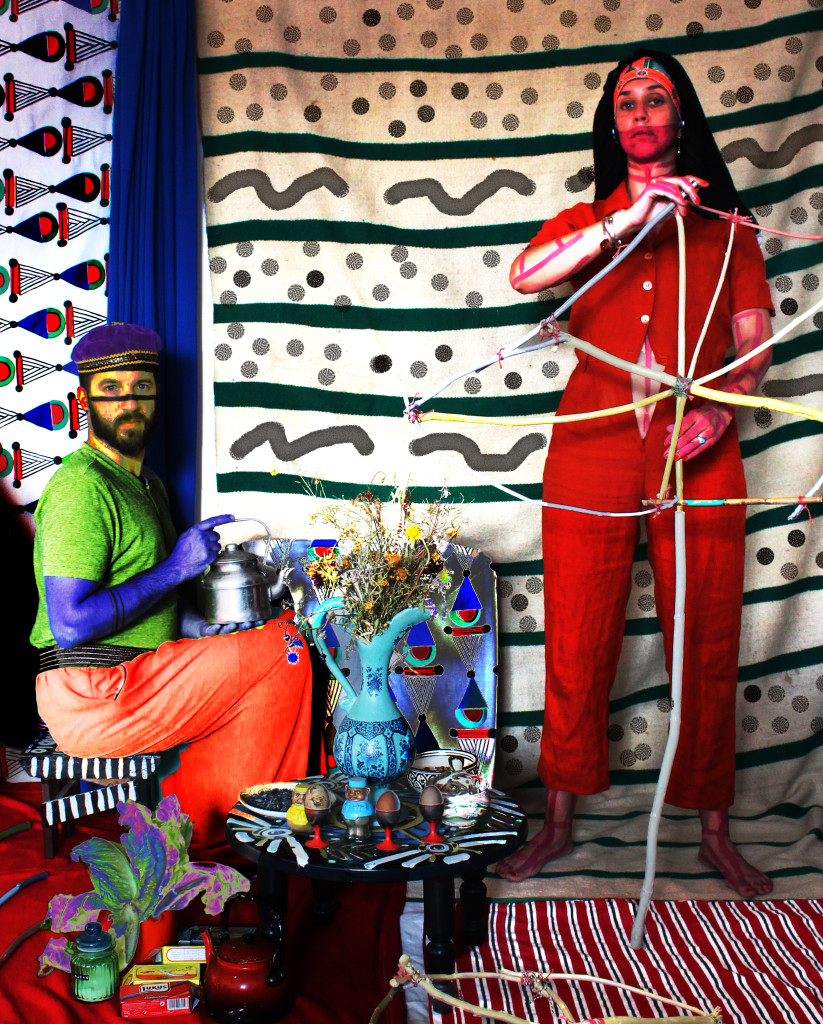 Egyptologie
EgyptologieJuliette Déjoué, from the Egyptologie series, variable dimensions, mixed media, 2019.
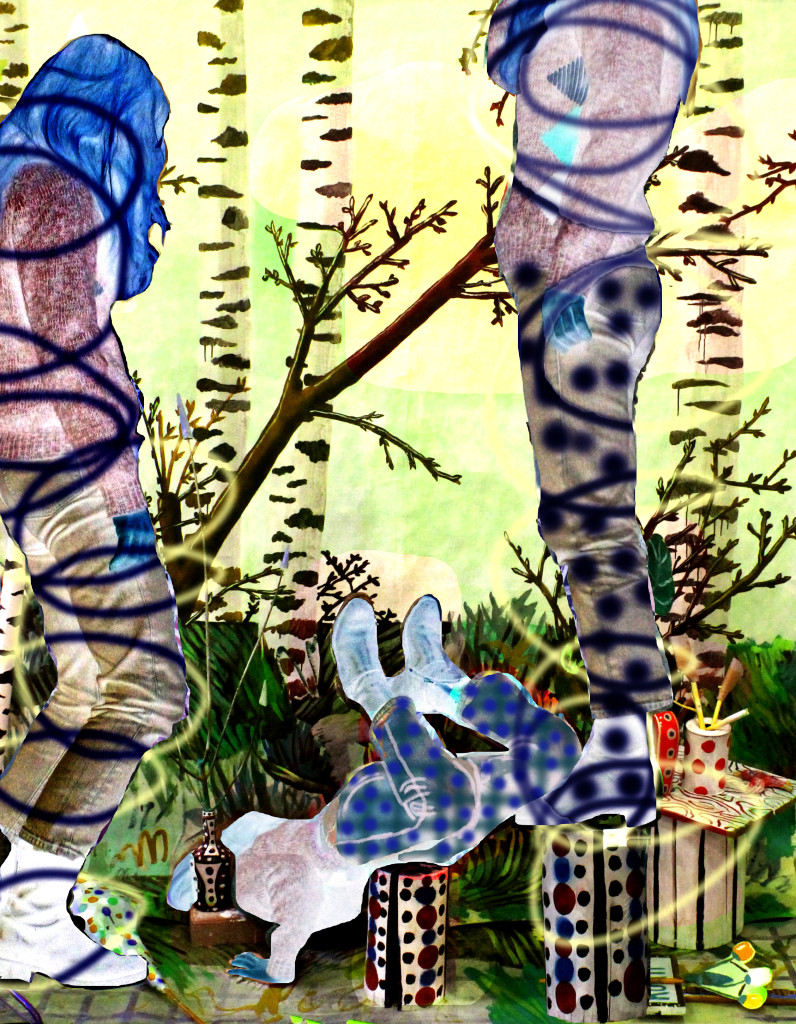 Kiev la forêt, mathilde
Kiev la forêt, mathildeJuliette Déjoué, from the series Kiev, la forêt, Mathilde, variable dimensions, mixed media, 2019.



